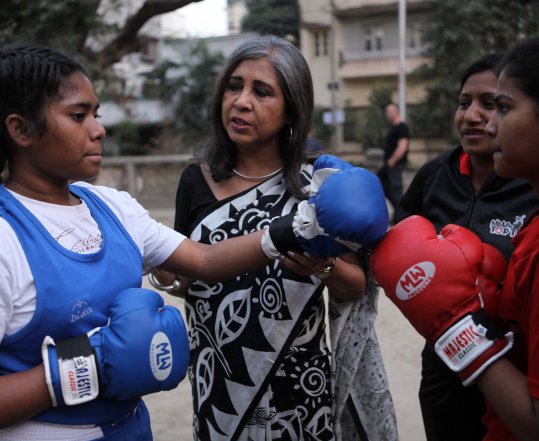There are no problems, there are only challenges! How to help children build their mental resilience?

Even the most difficult experience has its advantages: we learn new things about ourselves and how to react to certain situations, thanks to which each subsequent challenge is easier for us. Just as infections strengthen our immune system, unpleasant events build our mental resilience. However, this requires slowing down, preparing a strategy and recognising and appreciating what we have, what we know and who we can count on.
New light on a solved problem
You solved a problem? Pay more attention to it! Perhaps there was a matter that seemed unsolvable to you or to your child, yet you managed to handle it? This is your success and your capital for the future! Talk about what helped you accomplish this task, about the specific ways and strategies that you followed. What did it look like from your perspective and what worked according to your child? Discuss this experience and keep the best strategies in mind for the future.
A recipe for mental resilience
Meet 9-year-old Luis from Venezuela, who is a hero from our scenario about inner strength. Read the letter from Luis together. Talk to your child about what helped the boy, and, together, make a list of things that help you when you’re faced with something difficult. What character traits help you accomplish challenging tasks and not give up? How can you assist each other in such situations? Luis had his recipe for inner strength. We can give you the basic ingredients now:
First of all: gratitude. What are you thankful for right now? You could go back to the article about support and gratitude.
The second ingredient is being aware of and appreciating our own skills, our own knowledge and what we can do to change our situation. Think of reasons that you can be happy about right now. What do you find enjoyable at this moment? What nice things happened to you today? What nice and good things did you do for someone? The third component is the fact that even when it’s difficult, you should not give up. You have to search, ask questions and ask for help when it’s needed.
Who can I count on?
Refer to the third ingredient of our recipe for inner strength. Note that it’s important to look for different ways to deal with a given difficulty, but it’s equally important to ask for help when we can’t overcome it ourselves.
Discuss the following with your child:
When can we ask for help?
Who can we ask for help?
Tell your child about your own experiences, e.g. when you couldn’t cope with something difficult for you or when you didn’t know what to do in a given situation. Perhaps you used the help of a friend, a family member or maybe you called someone who’s a specialist in a given field, e.g. an IT specialist, when your computer broke down?
Inner strength shield
Everyone needs to strengthen their mental resilience now. We encourage you to make your own homemade strength shields. In one of the fields, write down or draw your strengths, i.e. what you feel good at, what comes easily to you. Next to it, write down what effectively helps you survive difficulties (learn from experience and observation). In the third field, express your gratitude. Then exchange your shields. When you put them together, you’ll see that you’re even stronger as a team!
A problem or a challenge?
The way in which we approach a particular difficulty and the language we use to describe the situation, is of paramount importance for the process of dealing with it. Together, consider which words help when you’re performing a difficult task. Take a piece of paper and write down reinforcements that give the child and other household members a boost. See how a few simple words can help you not give up. Use these words whenever you need them.
All source materials are prepared by the team of Kulczyk Foundation’s Education Department in cooperation with teachers and experts – pedagogists, psychologists and cultural experts – and verified by an experienced family therapist Kamila Becker. Kinga Kuszak, PhD, Professor of Adam Mickiewicz University, Faculty of Educational Studies, provides content-related supervision over Kulczyk Foundation’s educational materials. All materials are covered by the content patronage of the Faculty of Educational Studies of Adam Mickiewicz University.
The article was published on 28.04.2020 on the website of Instytut Dobrego Życia (Good Life Institute)
Authors: Marta Tomaszewska (Kulczyk Foundation) and Anna Woźniak (Instytut Dobrego Życia)

